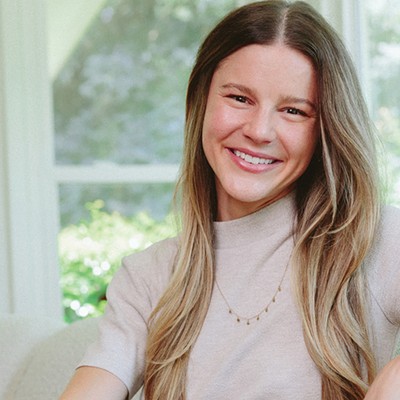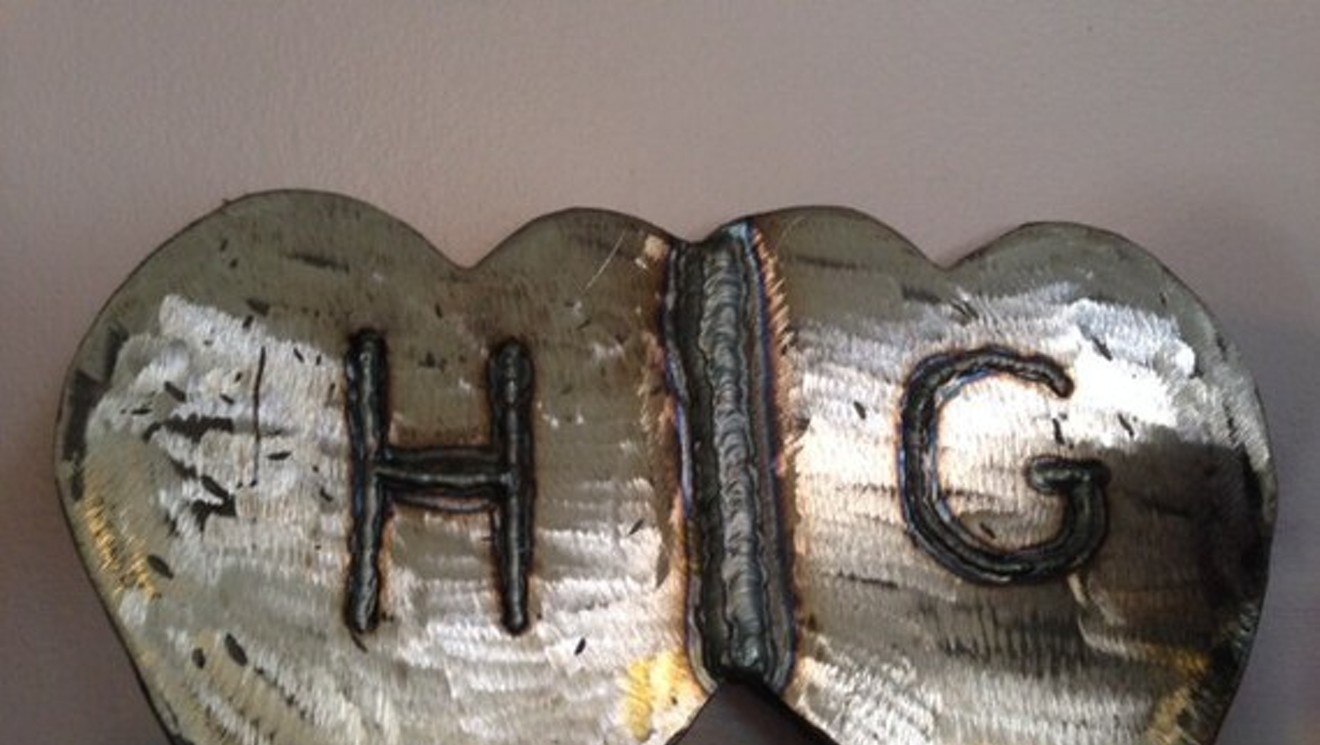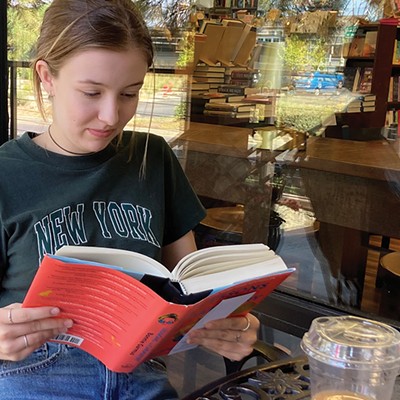"In the course of a week, I've found whole pizzas, wrapped sandwiches, bags of onions, garlic, shallots, salad mix, boxes of donuts and cookies and all kinds of vegetables," says a 20-something Bend resident who is also an on-and-off dumpster diver. He tells me his name is Mr. Nobody, and doesn't want his identity known because in many instances, dumpster diving equates to trespassing.
"I mainly only dumpster dive when I'm going through a poor stretch in my life," he says.
According to the website Freegan.info, dumpster diving is an off-shoot of Freeganism, a philosophy whose followers, "employ alternative strategies for living based on limited participation in the conventional economy and minimal consumption of resources." A study by the Urban Institute found that before the age of 65, more than half the U.S. population will have experienced poverty, which may explain why dumpster diving has become more than just a semi-accepted way to distribute and consume discarded, yet still edible, food. It's a political movement.
While Mr. Nobody does not identify with the politics of Freeganism, another twenty-something who goes by the name Free-Range Vegan regularly supplements his vegan diet with day-old bread abandoned in downtown Bend dumpsters and embraces the Freegan tenets.
"When one attempts to live off the waste of a consumer culture, rather than participate in [that culture], they directly refute the capitalistic overconsumption that has become seemingly ubiquitous in this culture, culminating in trash dumps filled with day-old food. Dumpster diving becomes a direct action of the everyday," says Free-Range.
Dumpster diving is a potentially illegal activity. The state of Oregon does have laws on the books prohibiting removal of recyclable materials from a dumpster without the permission of the owner, but there's no specific law about taking food out of garbage bin. However, if caught, dumpster divers risk being charged with trespassing and vandalism. Free-Range Vegan thrives on the risk.
"Dumpster diving becomes a combination of radical refutation, a political symbol and a day-to-day activity. And to top it all, it's free," he says.
Dumpster diving is also an activity cloaked in mystery and smothered in irony. All six local dumpster divers willing to participate in this article are men in their early twenties. Half are college students. Not surprisingly, half are poets. All have cell phones and laptops. Two have the perfect teeth that smack of orthodontic intervention. This is not a group of people I associate with being poor enough to eat another person's trash.
But how do these young men, most of whom have full or part-time jobs, justify buying cigarettes and beer and iPhones over food? Victor, one of the aspiring poets, answered: "Because people are absurd. And dumpster diving, frankly, is also very trendy."
Mr. Nobody agrees.
"Dumpster diving has a sense of authenticity. So does smoking. And there have been times that I have been too poor for either good food or cigarettes so I turn to dumpster diving and bumming cigarettes from friends," he says.
One of the more practical divers I contacted, Mr. Nobody also suggested other ways to forage for free food.
"Ask friends who work in bakeries, coffee shops and restaurants. Last winter a friend of mine working at a restaurant would stop by almost weekly with cartons of biscuits and containers of gravy," says Mr. Nobody.
Heavy Wind, a diver whose head is filled with conspiracy theories, told me of grocery stores that pour bleach into their dumpsters, restaurants that purposely destroy salvageable food and bakeries that lock their dumpsters at night. But he refused to name names.
Free-Range theorized that, "a majority of places that lock their dumpsters do it to keep private dumping out, not us getting in. I have heard rumors of people bleaching dumpsters or leaving traps, but never experienced this myself."
Local businesses have different ways of handling the issue of dumpster diving and their redistribution of leftover food. Newport Market doesn't have much diving activity because, as one of the employees says, someone from a food bank comes by and picks up the leftover food and day-old bread.
"We do a pretty decent job of managing day-olds because we are a small operation. We are vocal about discounting our day-old breads to low-income groups and dumpster divers can come in our front door to ask for bread past the due date," says Gordon Benzer, owner of Baked., a new bakery on Bend's westside, "They don't need to feel degraded going through dumpsters. I'd rather have our bread feed someone than end up buried in a plastic bag, degrading for eternity."
Whitney Blackman of Blue Sparrow Baking said her business takes the dumpster out of the equation at the 3rd Street bread baking location. "We leave our day-olds in a bag next to our dumpster. Without fail the bag is always gone in the morning," she says.
There also apparently exists in Bend something called The Golden Dumpster, sort of the Holy Grail of diving. All of the guys interviewed for this story begged me not to mention its location, but say it's a constant food source because it sits behind a business that has no plan for managing their throwaways. Theories abound as to why a business owner would overproduce so much food on a daily basis. Most speculation comes back to Free-Range's talk of American overabundance, and the desire for a store's cases and shelves to look chock-full during business hours. Lumber Jack, a diver with an iPhone and a flawless smile, was the most vocal about not revealing this prized location, saying he lives solely from this dumpster's sandwiches, cookies and bread.
So what does this secrecy mean for the Freegan, come-one-come-all ethos? Are they afraid that revealing location of the Golden Dumpster will cause the business to lock it, or even worse, quit dumping food in it for all the other dumpster divers to share?
Lumber Jack, heading to Colorado for the holidays and a home-cooked meal that would include his mother's prized pumpkin pie, answered, "Sharing? Whoever said anything about that?"




















